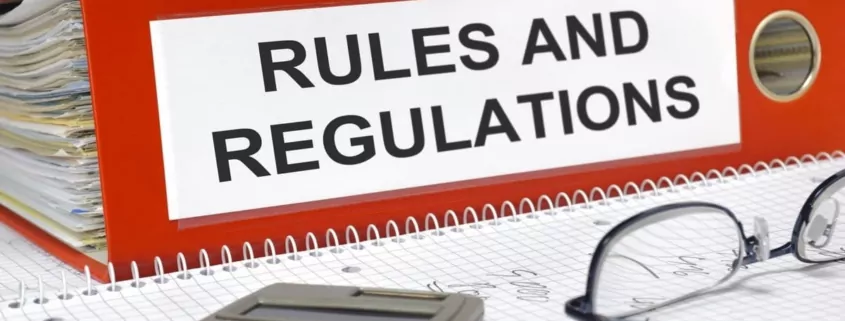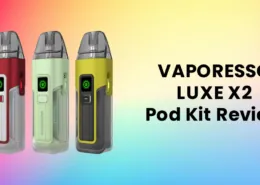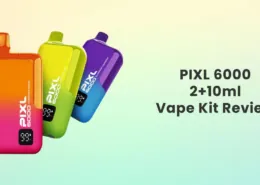US Tobacco & Vape Law Roundup: April 2025 State Actions
Overview of April 2025 tobacco and vaping legislative & regulatory changes across US states, including AL, CO, IN, IA, LA, MO, OH, SC, WA.
The landscape of tobacco and vaping regulation across the United States remains in constant flux, with local, state, and federal bodies continually reviewing and proposing changes. April 2025 was no exception, witnessing significant legislative activity from coast to coast. This roundup highlights key developments, from battles over flavored product bans in Denver to new tax structures in Indiana and preemption debates in Missouri. These ongoing efforts reflect the complex balancing act between public health concerns, particularly youth access, and the interests of retailers and adult consumers.
ALABAMA: Vaping Regulation Bill Advances in Senate
In Montgomery, an Alabama State Senate committee gave its approval to a comprehensive vaping regulation bill. This proposed legislation seeks to amend existing state law concerning the sale and regulation of traditional tobacco, alternative nicotine products, and various vapor products. If passed by the full senate, the bill would introduce several key changes aimed at tightening controls and bolstering enforcement.
Key provisions of the Alabama bill include:
- Vending Machine Sales Ban: A prohibition on the sale of these products through vending machines, a common measure to prevent underage access.
- Increased Penalties: Stiffer fines and other penalties for violations of sales regulations, such as selling to minors.
- New Licensing Fees & Enforcement Fund: The establishment of new licensing fees for sellers, with the revenue generated earmarked to create a dedicated fund for enforcement activities. This aims to ensure that regulatory bodies have the resources needed for inspections and compliance checks.
- School-Based Prevention: A requirement for K-12 schools across the state to adopt and implement policies focused on vaping awareness and prevention among students.
The bill’s advancement signifies a move towards more robust state-level oversight of the vaping market in Alabama, addressing both sales practices and youth education.
COLORADO: Denver’s Flavored Tobacco Ban Heads to Voters
Denver is set for a significant public vote regarding its recently enacted ban on the sale of flavored tobacco products, including flavored vapes. The ban, approved by the Denver City Council, officially went into effect on March 18, 2025. However, its future now rests with the city’s electorate.
A coalition of groups, primarily led by local vape shop owners, successfully mounted a signature-gathering campaign to challenge the ordinance. After verifying that nearly 11,000 of the more than 17,000 collected signatures were valid, the Denver clerk’s office confirmed the measure would be put to a public vote. The Denver City Council now faces the decision of whether to place the repeal question on the November general election ballot or to call a special election on a different date. This development ensures that Denver residents will have the final say on whether the flavored product ban remains in place, reigniting public debate on youth access versus adult consumer choice and business impacts.
INDIANA: Landmark Cigarette and Vape Tax Hikes Adopted
Indianapolis saw state lawmakers pass significant tax increases on cigarettes and other tobacco and nicotine products, marking the first cigarette tax hike in nearly two decades. The changes, amended into a budget bill, were adopted by both the Indiana State Senate and House of Representatives and have been sent to Governor Mike Braun for review.
Effective July 1, 2025, the new tax structure includes substantial increases:
- Cigarettes: The tax per pack will nearly triple, jumping from $0.995 to $2.995.
- Other Tobacco Products (OTP): The tax rate will increase from 24% to 30% of the wholesale price.
- Moist Snuff: The tax will rise from 40 cents to 50 cents per ounce.
- Cigars: The tax rate increases from 24% to 30% of the wholesale price, and the tax cap per cigar is raised from $1 to $3.
- Alternative Nicotine Products (e.g., Nicotine Pouches): The tax will increase from 40 cents to 50 cents per ounce.
- Closed System Vapor Cartridges (e.g., pre-filled pods): The tax rate will double, moving from 15% to 30% of the wholesale price.
- Vapor Consumable Material (e.g., e-liquids for open systems): The tax rate will also double, from 15% to 30%, applied at the retail level.
These comprehensive tax hikes are expected to significantly impact the price of these products for consumers and generate substantial new revenue for the state.
IOWA: Heated Tobacco Product Taxation Proposed
In Des Moines, an Iowa State Senate committee has recommended the passage of a bill that would specifically define heated tobacco products (HTPs) within state law and establish a new tax structure for them. The proposed tax is 3.4 cents per individual heat stick, which translates to 68 cents per pack of 20 sticks. This move indicates Iowa lawmakers are looking to ensure newer tobacco product categories are appropriately taxed as their market presence grows.
LOUISIANA: House Considers Steep Vape and Smokeless Tobacco Tax Increases
The Louisiana House of Representatives is currently deliberating two significant tax bills targeting vaping and smokeless tobacco products. One bill proposes a substantial tax increase on vaping products, setting a rate of 15 cents per milliliter of nicotine liquid, alongside a 33% tax on the invoice price of those products. If enacted, this vape tax increase would take effect on January 1, 2026.
The second bill aims to raise taxes on smokeless tobacco products, increasing the rate from the current 20% to 33% of the invoice price. This increase, if passed, would begin on July 1, 2025. These proposals reflect a legislative effort to increase revenue and potentially curb the use of these specific product categories through higher taxation.
MISSOURI: State Preemption Bill Advances, Limiting Local Tobacco Rules
Missouri lawmakers are moving forward with legislation that would assert state preemption over local tobacco and nicotine product regulations. The bill, heard in a state senate committee in late April, specifies that state law will supersede all local ordinances, rules, or regulations enacted by counties, municipalities, or other political subdivisions concerning the sale of tobacco products, alternative nicotine products, or vapor products.
If passed, this law would prevent cities and counties from enacting stricter local rules than those set at the state level, creating a uniform regulatory environment across Missouri but potentially limiting local communities’ ability to address specific local concerns regarding these products.
OHIO: Cleveland Enacts Stricter Tobacco Retail Licensing and Zoning
In mid-April, the Cleveland City Council approved a suite of new legislative measures aimed at tightening controls over tobacco sales and the proliferation of smoke shops. The new rules introduce several key changes:
- Mandatory Retail Licenses: All tobacco retailers must now obtain a specific retail license for each location where tobacco products are sold within the city.
- Smoke Shop Proximity Restrictions: A significant zoning change prohibits the establishment of new tobacco shops within 10,560 feet (two miles) of another existing smoke shop. Additionally, tobacco stores may not be located in the same building or on the same lot as another.
- Buffer Zones from Sensitive Locations: Tobacco shops are also now prohibited from operating within 500 feet of any church, public library, school, public park, or playground.
These measures represent a concerted effort by Cleveland to manage the density and location of tobacco retail outlets, likely with a focus on reducing youth exposure and access.
SOUTH CAROLINA: New Tax Proposed for Heated Tobacco Products
A South Carolina House of Representatives committee has voted in favor of a new bill that would introduce a tax on heated tobacco products (which are not yet widely sold in the state) and any other substitutes for tobacco. The proposed tax is set at 25 cents per pack (or equivalent unit) and would become effective on October 1, 2025, if the bill is passed into law. This proactive measure aims to establish a tax framework for emerging tobacco product categories.
WASHINGTON: Nicotine Product Tax Extended, Cigarette Tax Hike Fails
In Olympia, a bill successfully passed both the Washington State Senate and House of Representatives that extends the state’s current 95% tax on tobacco products to also cover products that contain nicotine, regardless of whether the nicotine is derived from tobacco or produced synthetically (e.g., nicotine pouches). This ensures tax parity between traditional tobacco and newer nicotine products. However, a separate effort to increase the state’s cigarette tax by $2 per pack failed to pass. The bill extending the tax to all nicotine products is currently awaiting final review by Governor Bob Ferguson.
This roundup illustrates the dynamic and often divergent approaches states are taking to regulate and tax tobacco and vaping products, reflecting ongoing public health debates and fiscal considerations across the nation.
- Vaping Laws in Pennsylvania: A Comprehensive Guide for 2025 - July 6, 2025
- Is Vaping While Driving Illegal in Oregon? (2025 Guide) - July 4, 2025
- Vaping Laws in Oregon: What You Need to Know in 2025 - July 4, 2025






